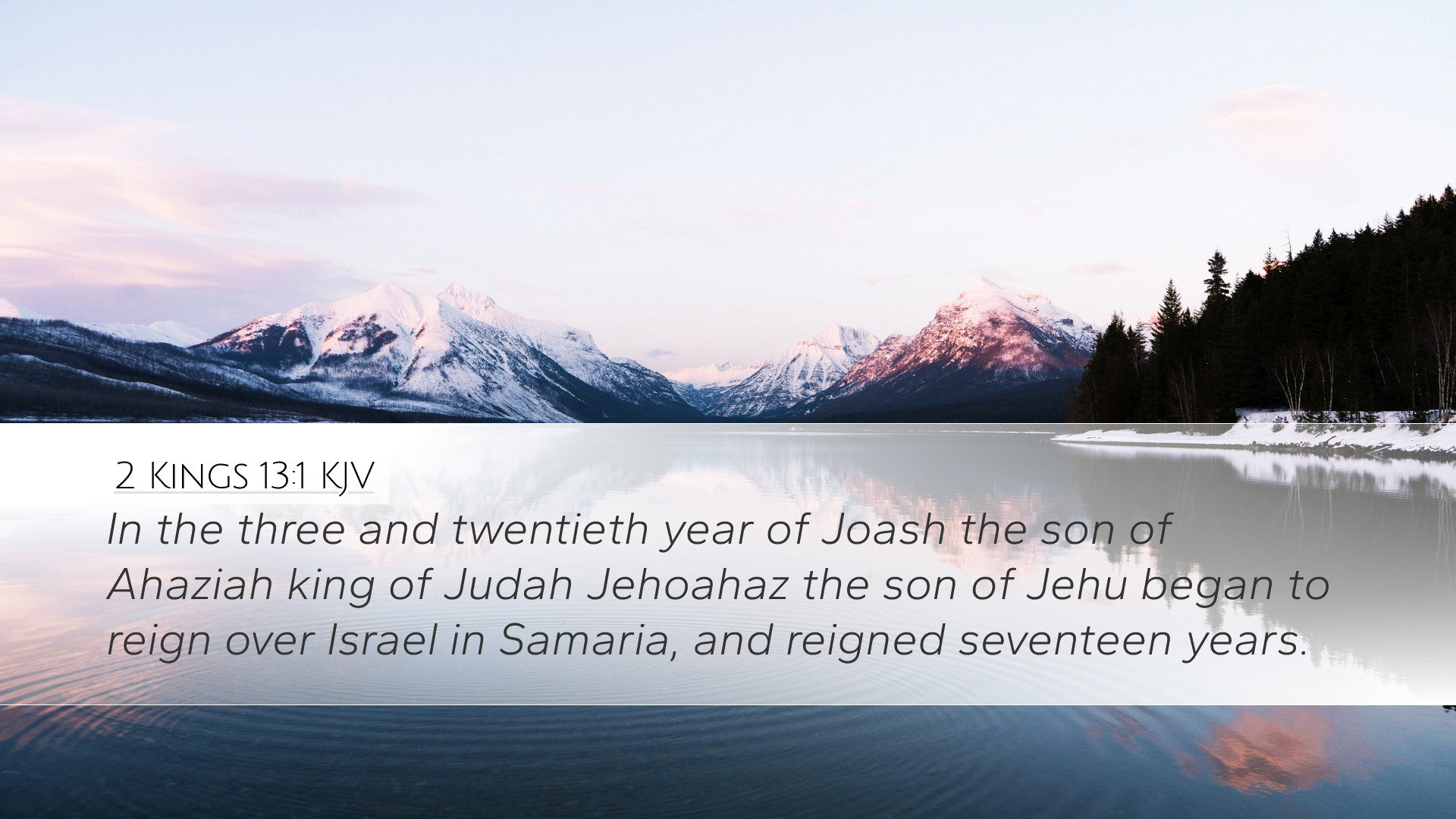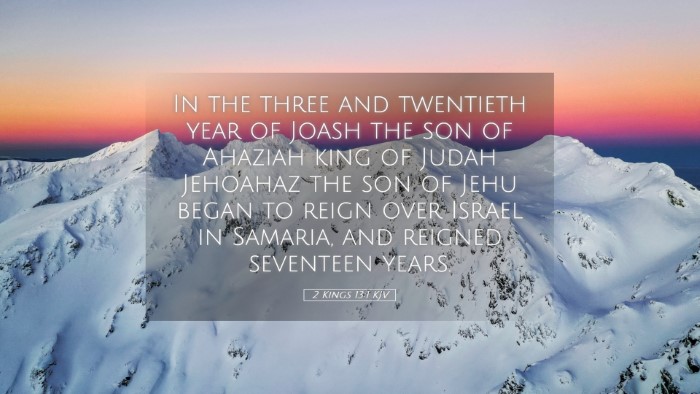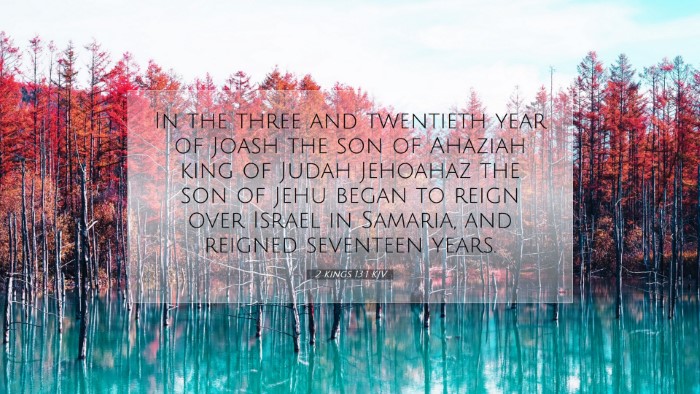Commentary on 2 Kings 13:1
This verse introduces a significant transition in the narrative of Israel's kings, delineating the reign of Jehoahaz in the northern kingdom of Israel. It states:
"In the three and twentieth year of Joash the son of Ahaziah king of Judah Jehoahaz the son of Jehu began to reign over Israel in Samaria, and reigned seventeen years."
Contextual Background
The historical context surrounding 2 Kings 13 is crucial for understanding the spiritual and political state of both Israel and Judah during this time. Jehoahaz ascends the throne after the death of his father, Jehu, who was known for eradicating the house of Ahab. However, this bloodline's legacy is marred by Jehoahaz's own failures as king.
Insights from Matthew Henry
Matthew Henry accentuates the continuity of Israel’s struggle against idolatry and sin. He notes:
- Jehoahaz ruled in a time when the blessings of God were scarce due to the people's persistent rebellion.
- Despite his lineage, Jehoahaz could not escape the consequences of national disobedience.
Henry highlights the significance of the timeline in this verse, emphasizing that the 23rd year of Joash's reign in Judah served as a benchmark for Israel's instability and divine judgment.
Insights from Albert Barnes
Albert Barnes provides a detailed analysis of Jehoahaz's reign, mentioning:
- The geopolitical pressure from Aram (Syria) during his kingship, showcasing the military failures that characterized his rule.
- His reign lasted 17 years, yet it was devoid of significant achievements or reforms. The people were subjected to heavy oppression by the Syrians, indicating a time of national distress.
Barnes underscores the idea that Jehoahaz’s rule illustrates the dire consequences of idolatry, as it resulted in weakened national strength and divine neglect, leading to a vulnerable Israel.
Insights from Adam Clarke
Adam Clarke approaches this passage with a focus on the theological implications of Jehoahaz's reign:
- He remarks on the actions of Jehoahaz as a representation of the people's overall spiritual decline, as they clung to idolatry instead of adhering to God's covenant.
- Clarke emphasizes that God’s providence was still at play, despite the dire circumstances, as He raised prophets to guide and warn the people even during Jehoahaz’s shortcomings.
Clarke's commentary sheds light on the hope that permeated this turbulent period, where, despite the failures of leadership, God remained steadfast in His will for Israel.
Theological Reflection
The reign of Jehoahaz invites a robust theological reflection on leadership, divine justice, and grace. The commentary converges on several key themes:
- The importance of faithful leadership: The failures of Jehoahaz exemplify the broader consequences of unfaithfulness in leadership, reminding contemporary readers of the necessity for integrity, and the reverberating effects of leadership choices in spiritual and secular realms.
- God's patience and mercy: Despite the rebellion of Israel, God’s unyielding patience encourages further examination of His grace. Even amidst declining spiritual conditions, God continues to send messengers, indicating that redemption is always near.
- The cycle of sin and redemption: Jehoahaz's reign serves as a crucial reminder of the continuous cycle of sin that characterizes the nation of Israel, where repentance can lead to restoration if earnestly sought.
Conclusion
In summation, 2 Kings 13:1 encapsulates the essence of a period in Israel’s history marked by turmoil and rebellion. Jehoahaz's kingship is a microcosm of the broader narrative of Israel's ongoing struggle with identity, divine favor, and the consequences of turning away from God. The insights drawn from the public domain commentaries of Matthew Henry, Albert Barnes, and Adam Clarke provide pastors, theologians, students, and scholars with a rich tapestry for understanding the spiritual depth of this passage and its implications for contemporary faith practices.


